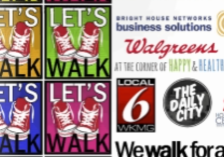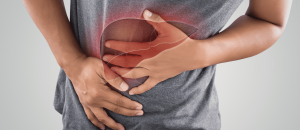How to Easily Get Medically Prepared for a Hurricane
Getting medically prepared for a hurricane is easier than you think. But it could be even more important than your typical hurricane prep routine. Hurricanes are erratic, powerful and destructive forces of nature. In addition, they can rapidly grow stronger. Or even decrease in strength but stall bringing wind and rain for extended periods of time. So even if we don’t think a storm will hit us, we should always be ready. In short, an Emergency Plan is the best way to get medically prepared for a hurricane.
Many people understand how to prepare their home and property from damage but often overlook their medical needs during these extended emergencies. Therefore, creating an Emergency Medical Kit that includes typical emergency supplies is a great idea. This is a general list, so keep in mind your specific medical conditions and needs. Above all, your Emergency Medical Kit can save you tremendous headache and perhaps even save our life.
How to Easily Get Medically Prepared for a Hurricane
This guide was created with information from FEMA, the FDA and The Orange County Government.
1. Medical Contact List – Maintain a list of medical phone numbers and contact information. For example, include your doctors, pharmacy, case manager, peer mentor, service providers and medical facilities. Then tell your family and friends
2. Medication – FEMA recommends that you have a 1 week supply of your prescription medications on hand, 2 weeks if possible.
- Current Medications – Make sure your pharmacist has an updated list of the medications. After that, have them print it for you.
3. Medical Records – Make hard copies and maintain electronic versions, including a portable thumb drive containing:
- Medical insurance cards, Medicare or Medicaid card, a list of your allergies, and your health history.
- Make an list of important online insurance or website information on it. Then keep passwords in different secure location.
- Doctors’ orders for Durable Medical Equipment, Consumable Medical Supplies and assistive devices that you use.
4. Medical Alert Bracelet – If you own one, wear it.
5. Additional Medical Supplies – For example, blood testing strips, bandages or insulin and make sure you have a two week supply.
6. Special Needs – If you require special needs you can register here with the State Emergency Response Team (SERT).
7. Mental Health – Storms can be stressful and/or traumatic. Therefore, we should be aware of our state of mind and take proper care. For example, staying with friends or loved ones that can provide comfort.
8. Extra Pair of Glasses – This extra pair can be critical in an emergency.
9. Extra Phone Portable Charger – Make sure its charged and ready to go.
10. Food – So you can meet any special dietary needs plus many medications require you to take them with food.
11. Medical Appointments – After the storm, call and confirm that the office is open before you go. If the office was closed when you had an appointment reschedule as soon as possible.
That was easy!
You’re ready! So share your plan with a trusted friend or loved one that you are medically prepared and who to contact in case of emergency. To clarify, this is a simply a guide to assist you medically prepare for a hurricane. That is to say, you should also refer to other federal, state and local resources to make sure your are fully prepared. Please clink the links for additional information. Then review all your resources to make ensure you are prepared in the event of an emergency.
Local Emergency Resources – Phone Numbers and Links (Print out and keep with you.)
Office of Emergency Management – (407) 836-9140
People with Special Needs Program – (407) 836-9319
Office of Emergency Management – (407) 665-5102
Hurricane Hotline number is – (407) 742-0000
Office of Emergency Management – (321) 633-2000
Office of Emergency Management – (352) 343-9420
Local Mental Health Resources – Phone Numbers and Links
Orlando United Assistance Center – 407-500-HOPE (4673)
The Mental Health Association of Central Florida – (407) 898-0110
General Community Resources – Phone Numbers and Links
Heart of Florida United Way – 211 or 407-835-0900
Stay safe!
 Sam Graper,
Sam Graper,
Community Relations Manager,
Orlando Immunology Center
Proudly Serving Central Florida for Over 20 Years
Get connected on Facebook, Instagram and Twitter. #BESTdoctors #OICorlando
More Articles
Dr. DeJesus Recognized by Orlando Magazine
For the 5th consecutive year, Dr. DeJesus has been recognized by his peers in Orlando Magazine for his work as medical director at Orlando Immunology Center. Dr. DeJesus is a graduate from the University of Puerto Rico, School of Medicine. He completed his Internal Medicine training and Infectious Disease fellowship at the Medical College of…
Read MoreJoin OIC at the 2015 AIDS Walk Orlando
Orlando Immunology Center is pleased to announce that we will again be sponsoring a team at this year’s 2015 AIDS Walk Orlando. If you are interested in joining our team or donating to this worthwhile cause, please let us know. Saturday, March 28, 2015 In Florida, 15% of all new HIV infections reported among females…
Read MoreOIC Wins Wave Award for Favorite Local Healthcare Professional
The Orlando Immunology Center (OIC) announced today they have received the Central Florida/Orlando 2015 Watermark Awards for Variety and Excellence (WAVE) Award for favorite local healthcare professional. “We see this as a huge honor and will continue to do everything in our power to help patients from all walks of life be healthy, happy and…
Read MoreWhat Is Hepatitis?
What is hepatitis? Are there different types of hepatitis? What are the symptoms of hepatitis? How is hepatitis treated? Hepatitis is a common liver condition that affects millions of Americans. The condition can be contracted from a wide range of causes, including viruses, alcohol use, drugs, or certain medical disorders. Out of the millions of…
Read MoreWhat Is Usually the First Sign of HIV?
What is HIV? What are the signs of an HIV infection? What is an HIV test? What if my HIV test result is positive? HIV, or the human immunodeficiency virus, exists within the bodies of more than 1.2 million Americans. Each year, more than 35,000 new infections emerge. If left untreated, the virus can lead to acquired…
Read MoreWhat Is HPV?
What is HPV? How do I know if I have HPV? How is HPV diagnosed? If I have HPV, am I going to get cancer? Can HPV be cured? How is HPV prevented? HPV stands for human papillomavirus, the most common sexually transmitted disease in the U.S. The illness currently affects 79 million HPV sufferers, many…
Read MoreQueen Bee Educates; Redefining Women’s HIV Advocacy
Who is the Queen Bee? A mother discovers her inner “Queen Bee” and creates a buzz worthy approach to educate women and children about good health and HIV. A honey of a story. Who is the Queen Bee? Dr. Andrea Dunn is a mother, a doctor, an active community member and the Founder, CEO, and…
Read MoreLatest HIV Research Every Women Needs
Discover the latest research, why it matters and what action you can take now! This is the latest HIV research every women needs. Yes, we said EVERY WOMAN. HIV doesn’t discriminate and neither should you. First of all, when you think of good health do you include sexual health? It’s time we did and knowledge is power. To…
Read MoreWhat are Genital Warts?
What are genital warts? What causes genital warts? What are the symptoms of genital warts? How are genital warts diagnosed and treated? Can I prevent genital warts? Each year, more than 20 million people in the United States are diagnosed with sexually transmitted infections (STIs). While this number may seem staggering on its own, STIs are even…
Read More- « Previous
- 1
- …
- 6
- 7
- 8








